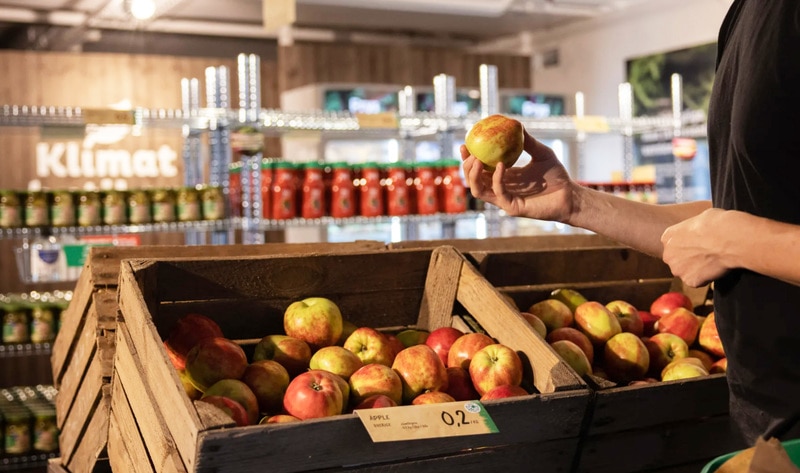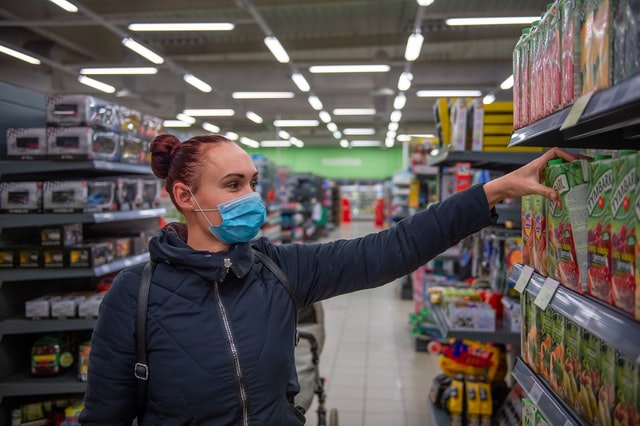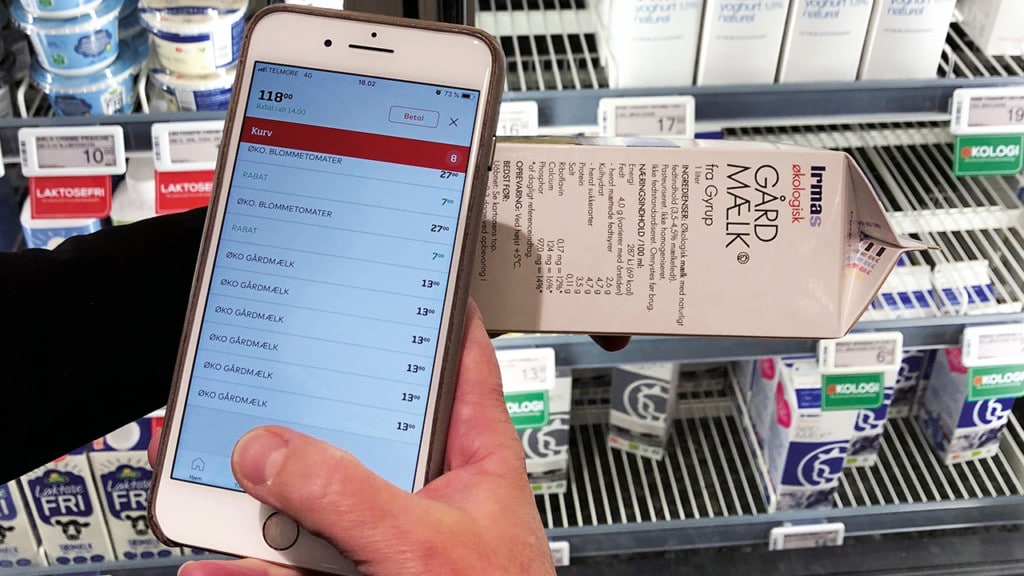
- Inspiring People -
- 3mins -
- 1,451 views
New store in Sweden prices products based on their carbon footprint
Swedish food brand Felix recently opened “The Climate Store,” a grocery shop where items are priced based on their environmental impact.
Climate Currency: Swedish supermarket prices produce according to its climate impact
A new supermarket called The Climate Store has opened in Sweden. In a world’s first, the grocery store prices its products according to their carbon footprint – meaning consumers pay higher prices for products that are more carbon-intensive, such as meat and dairy. The initiative launched by Felix, a Swedish food brand owned by Nordic food giant Orkla, is aimed at raising consumer awareness about the true impact of their food choices.

The company hopes to halve the climate impact of the average grocery basket
The Climate Store is an interactive initiative launched earlier this month by Felix, where the currency is carbon. Customers shopping at the supermarket have a weekly budget of 18.9 kilograms of carbon dioxide equivalent, and items that are carbon-intensive, such as animal-based products, are priced higher than their plant-based counterparts, which have a far lower footprint.
Animal-based foods require more water, land resources to produce and emit more greenhouse gases. According to the United Nations, the livestock industry contributes almost a fifth of global greenhouse gas emissions – more than all transportation combined – and is a leading driver of deforestation due to deliberate land clearing to make room for ranching and animal feed cultivation.
“It will be exciting to see how customers react to trading with the CO2e currency and see if they manage to stay within their weekly budget,” said Thomas Sjöberg, marketing manager at Felix. “I think it will be an eye opener for many to see how certain choices affect what you can afford to get in the same lunch bag.”
By giving consumers a carbon footprint budget, the company hopes to halve the climate impact of the average grocery basket. It represents the first time such a concept has been created, and its goal is to raise consumer awareness about the environmental footprint of different foods. Felix, as part of the campaign, will also add labels to its products that indicate its climate impact.
This is part of a wider effort by the brand to highlight the climate impact of consumers’ dietary choices. In October, Felix began stamping products in its line that are better for the climate with a ‘Low Impact’ label.
Source: GreenQueen.com.hk

This Dutch company tells you the ‘True Price’ of your groceries
Everything you buy leaves traces behind. Your morning coffee, daily T-shirt, or evening lipstick. Often, natural and social costs are involved. Examples of social costs are extremely low wages or an unsafe work environment, and natural costs are air pollution or climate change. People and nature pay a price for this damaged, which isn’t included in the prices you pay at most stores.
At Netherlands-based True Price, their mission to make it possible for you to see and improve the true price of products because they believe that true pricing is a bedrock of a sustainable and inclusive economy. They opened the True Price Store (currently every Saturday in the shopping district of Amsterdam) to offer true price products to consumers. True Price also guides companies towards applying true price practices.
Source: TruePrice

Danish grocery app helps shoppers track carbon impact
Meanwhile, in June, Danish grocery store Coop unveiled an app that allows shoppers to track the estimated carbon impact of their shop. The tool takes into account carbon released as a result of production, processing, transportation and any food waste produced from field to shop.
The app will also offer advice on how to change their grocery shopping habits to reduce their own carbon footprint. The app also allows shoppers to compare the footprint of their shop to that of the average shopper’s basket.
These concepts offer clever ways to help consumers reduce their personal carbon impact and make greener choices at the point of sale.
Source: Stylus.com

